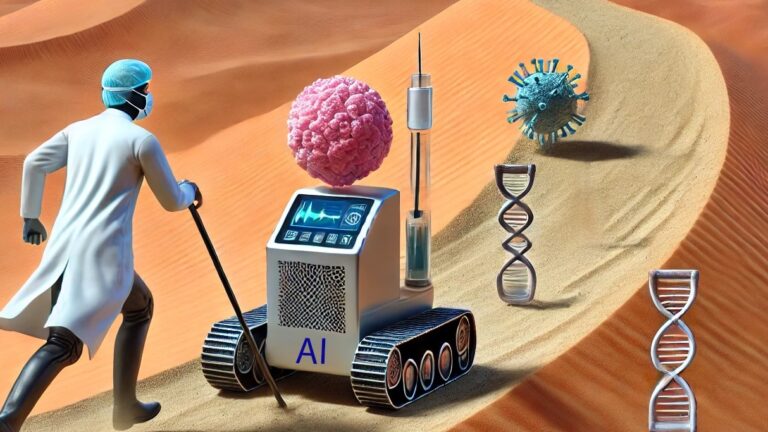In a significant step forward in the fight against glioblastoma, the most aggressive form of brain cancer, two independent research teams have made promising discoveries that could lead to more effective treatments. A Canadian-American collaboration has identified a new brain pathway hijacked by glioblastoma cells, while researchers from the USC Norris Comprehensive Cancer Center have developed an AI-driven immunotherapy approach to reprogram cancer cells.
Uncovering a New Pathway and Promising Therapy
The Singh Lab at McMaster University led a team of Canadian and American researchers to discover a new pathway that glioblastoma cells use to infiltrate the brain. Published in Nature Medicine, the study also reveals a promising therapy that shows potential in blocking and killing these tumors in preclinical animal models.
By comparing gene dependencies in glioblastoma at initial diagnosis and after recurrence following standard treatments, the researchers identified a signaling pathway normally used for axonal guidance that can be overrun by cancer cells. Targeting this pathway using a drug developed at the University of Virginia and a new CAR T cell therapy developed with the National Research Council Canada led to a doubling of survival time in animal models, with tumor eradication in at least 50% of mice in two of the three cancers tested.
“If we can block this pathway, the hope is that we can block the invasive spread of glioblastoma and kill tumor cells that cannot be removed surgically,” said co-senior author Sheila Singh, professor at McMaster University.
AI-Driven Immunotherapy Shows Promise
In a separate study, researchers from the USC Norris Comprehensive Cancer Center leveraged artificial intelligence (AI) to reprogram glioblastoma cells into immune-activating dendritic cells (DCs). Published in Cancer Immunology Research, the groundbreaking study demonstrates the potential to turn the cancer’s own cells against itself.
By using AI to identify genes that control cell fate, the USC research team, led by Dr. David Tran, developed a method to convert glioblastoma cells within the tumor into DCs, bypassing the blood-brain barrier. When tested in mouse models, the AI-driven approach significantly enhanced immune response and survival rates, improving the chance of survival by 75% when combined with immune checkpoint therapy and doubling the chance of survival when used alongside a classic DC vaccine.
The researchers also identified a set of human genes capable of converting human glioblastoma cells into DC-like cells and plan to refine the gene list and conduct safety and efficacy tests in animal models before moving towards clinical trials.
Why it matters: Glioblastoma is a devastating brain cancer with a poor prognosis, and current treatments have had limited success in improving patient outcomes. These two promising advances offer new hope for patients battling this aggressive cancer. The discovery of a new brain pathway hijacked by glioblastoma cells and the development of an AI-driven immunotherapy approach to reprogram cancer cells represent significant steps forward in the fight against glioblastoma. With further research and clinical trials, these findings could lead to more effective treatments and improved survival rates for patients diagnosed with this deadly form of brain cancer.
If our reporting has informed or inspired you, please consider making a donation. Every contribution, no matter the size, empowers us to continue delivering accurate, engaging, and trustworthy science and medical news. Independent journalism requires time, effort, and resources—your support ensures we can keep uncovering the stories that matter most to you.
Join us in making knowledge accessible and impactful. Thank you for standing with us!

